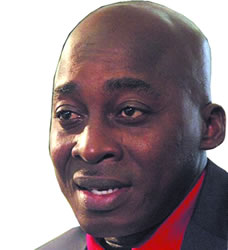


Posted by By Daniel Alabrah on



Pressure from concerned Niger Delta leaders may have compelled the Federal Government to do a rethink of the ongoing secret trial of the leader of the Movement for the Emancipation of the Niger Delta (MEND), Mr Henry Okah.
•Cuts deal with militant leader
Pressure from concerned Niger Delta leaders may have compelled the Federal Government to do a rethink of the ongoing secret trial of the leader of the Movement for the Emancipation of the Niger Delta (MEND), Mr Henry Okah.
The government is also said to be planning to outline fresh conditions for amnesty for militants in the Niger Delta who renounce violence.
Okah, who was extradited after his arrest in Angola late last year with one Edward Atatah, is being tried in camera by the government at a Federal High Court sitting in Jos, Plateau State, on a 162-count charge bordering on gun-running and treasonable felony.
An authoritative source close to the Presidency informed Sunday Sun that the government is 'seriously considering' an open trial option following representations made by some Niger Delta governors and opinion leaders during their recent discussions with Vice President Goodluck Jonathan.
Already, the Federal Executive Council (FEC) is said to be awaiting the advice of the Attorney-General and Minister of Justice, Mr Michael Aondoakaa, and the National Security Adviser, retired Major-General Sarki Mukhtar, before the government takes action on the matter.
Another controversial issue that is also expected to be resolved by the FEC is the withholding of over N400 billion meant for the Niger Delta Development Commission (NDDC), which the government said had 'expired.' We learnt that it decided to revisit the issue with a view to paying the withheld fund to the commission.
According to our source, among the arguments put forward by the Niger Delta leaders during the meetings with Jonathan was that there was no sufficient reason for the secret trial of Okah and that it had not only led to increasing attacks in the region but was also compounding dialogue with the militant youths.
It is believed that ending the secret trial would pacify some of the leaders and militants, who use Okah's arrest and trial as excuse for violent acts in the region.
However, the government is said to be scared that an open trial may just be a prelude to Okah regaining his freedom, as the prosecutors are said not to have any proof of evidence against him and was buying time with the secret trial while shopping for evidence.
A source close to the court where Okah is being tried also told Sunday Sun that the government was afraid that an open trial would not be in its interest as it does not want the MEND leader to tell the world his alleged links in the military.
'The secret trial is only a smokescreen. Why don't they (government) tell the world what they mean by Okah is a security threat and why have they accused him of inciting the military?
'The government is afraid of an open trial because it has no proof of evidence in the case. Eventually Okah will be freed,' the source, who is a legal practitioner, said.
MEND also believes the government opted for a secret trial because it wanted to save itself the embarrassment of denying 'revelations' that would emerge from an open trial.
In a terse email response to Sunday Sun enquiry, its spokesperson, Jomo Gbomo, said:' The Federal Government wants to avoid the type of revelations that came out from the mouth of the Group Managing Director of the NNPC (Nigerian National Petroleum Corporation) and the recent one from MEND.'
The NNPC boss purportedly said recently during an investigative hearing at the National Assembly that the corporation paid $12 million to militants in the Niger Delta as protection fee for its pipelines in the Chanomi Creeks in Delta State.
It later denied the claim after MEND alleged that the oil corporation actually paid out $20 million and not $12 million and that the amount was shared by some 'disgruntled militants' and government officials.
Last weekend, the militant group also alleged that the Secretary to the Government of the Federation, Ambassador Babagana Kingibe, offered it $20 million so that it could back down on its ultimatum to construction giants, Julius Berger, to quit work sites in Abuja, the federal capital.
Kingibe, however, dismissed the claim, saying the government will never negotiate with criminal elements masquerading as militants in the Niger Delta.

